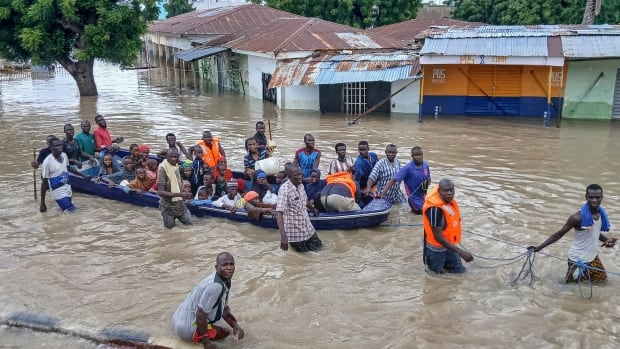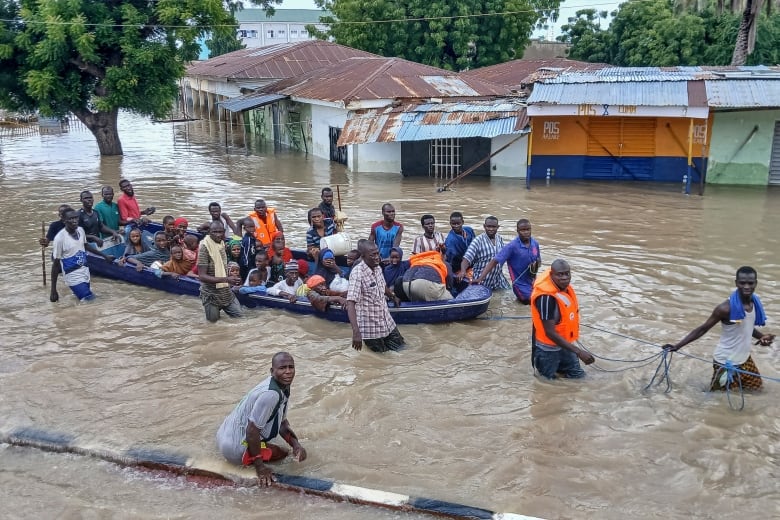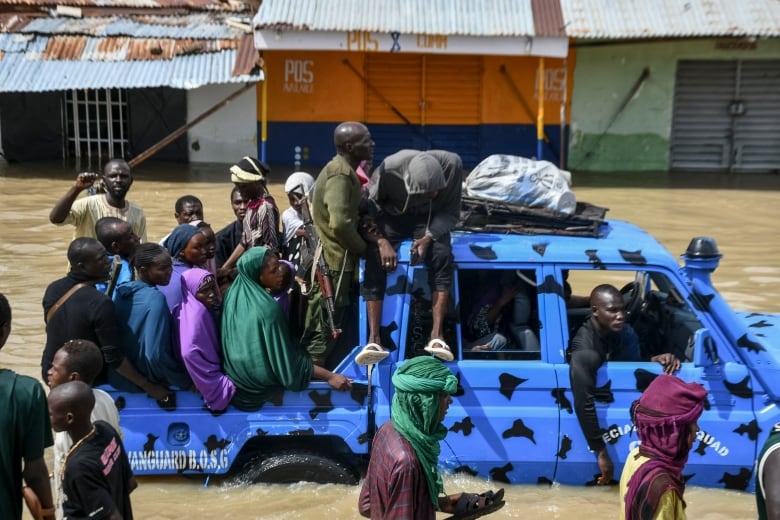
More than four million people have been affected by floods across six countries in western and central Africa, the World Health Organization says.
The floods — the most devastating in recent years with unprecedented scale and severity — have mainly affected Cameroon, Chad, Guinea, Mali, Niger and Nigeria, and displaced more than 500,000 people, destroyed over 300,000 houses and claimed over 1,000 lives, the WHO said in a statement this weekend.
Residents of Maiduguri, the capital of the fragile Nigerian state of Borno, say they have seen it all: houses swept away to the very last brick, inmates frantically fleeing the city’s main prison as its walls got washed away by water rising from an overflowing dam, corpses of crocodiles and snakes floating among human bodies on what used to be main streets.
Saleh Bukar, a 28-year-old from Maiduguri, said he was woken up last week around midnight by his neighbours.
“Water is flooding everywhere!” he recalled their frantic screams in a phone interview. “They were shouting: ‘Everybody come out, everybody come out!'” Older people and people with disabilities did not know what was going on, he said, and some were left behind.
Those who did not wake up quickly drowned right away.
While Africa is responsible for a small fraction of global greenhouse gas emissions, it is among the regions most vulnerable to extreme weather events, the World Meteorological Organization said earlier this month. In sub-Saharan Africa, the cost of adapting to extreme weather events is estimated between $30-50 billion US annually over the next decade, the report said. It warned that up to 118 million Africans could be impacted by extreme weather by 2030.

Maiduguri has been under significant strain even before the floods. Over the last decade, Borno has been hit by a constant string of attacks from Boko Haram militants, who want to install an Islamic state in Nigeria and have killed more than 35,000 people in the last decade.
Survivors recounted chilling scenes of bodies in the floodwaters.
Aishatu Ba’agana, a mother of three, had to abandon her recently born baby as water surging over her house overwhelmed her.
“I yelled for my family to help me get my child, but I don’t know if they were able to. I haven’t seen any of them since,” she said, crying at the camp where rescue workers brought her.
Canoe trips cost more than a month’s wage
The flood also destroyed crucial infrastructure, including two major dikes of a dam along Lake Alau. When the dam failed, 540 billion litres of water flooded the city. Key bridges connecting Maiduguri collapsed, turning the city into a temporary river.
Many residents are relying on canoes.
Falmata Muhammed, a 48-year-old mother of three, said she decided to move some furniture this week but was shocked when a canoe owner charged her about $50 US for a short trip, more than the monthly minimum wage.

After losing almost everything to floods, she was upset that “some are making it a big business, using the disaster to make a huge amount of money.”
Floods in mostly arid Niger have impacted over 841,000 people, killing hundreds and displacing more than 400,000.
Harira Adamou, a 50-year-old single mother of six, is one of them. She said the floods destroyed her mud hut in the northern city of Agadez.
“The rooms are destroyed; the walls fell down,” she said. “It’s a big risk to live in a mud hut but we don’t have the means to build concrete ones.”
Adamou, who is unemployed and lost her husband four years ago, said she has not received any support from the state and has not had the opportunity — or the means — to relocate. She and her children are living in a temporary shelter next to their shattered hut, and fret that the torrential rains might return.
“I understood there was a change in the weather,” she said. “I have never seen a big rain like this year here in Agadez.”